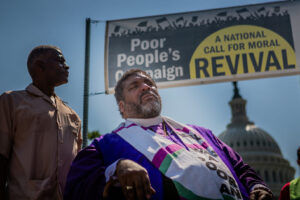Do You Know How Many People Are Poor in Today’s World? Neither Does the U.N.
Oxford economists recently discovered that the United Nations has been miscalculating worldwide poverty numbers by an astounding 400 million people. Shahnawaz Sid (CC BY 2.0)
Shahnawaz Sid (CC BY 2.0)
Oxford economists recently discovered that the United Nations has been miscalculating worldwide poverty numbers by an astounding 400 million people.
The Atlantic:
The Oxford Poverty & Human Development Initiative (OPHI) released a report, the Global Multidimensional Poverty Index 2014 (MPI), [last week] looking at the state of poverty in the world today. It is being touted as the most accurate reflection of the world’s poor, a sort of census of the global impoverished population.
Didn’t that exist already? For more than a decade, the United Nations Development Programme has measured world poverty using its Human Poverty Index (HPI). The HPI defined poverty as those making less than $1.25 a day.
But it lacked in two key areas. First, it counted countries as one whole mass, unable to differentiate degrees of poverty within a country and locate the worst pockets. And second, it placed all of its scrutiny on income, without considering other indicators such as health and education….
So what did we find out about poverty now that we can measure it better? Sadly, the world is more impoverished than we previously thought. The HPI has put this figure at 1.2 billion people. But under the MPI’s measurements, it’s 1.6 billion people. More than half of the impoverished population in developing countries lives in South Asia, and another 29 percent in Sub-Saharan Africa. Seventy-one percent of MPI’s poor live in what is considered middle income countries—countries where development and modernization in the face of globalization is in full swing, but some are left behind. Niger is home to the highest concentration of multidimensionally poor, with nearly 90 percent of its population lacking in MPI’s socioeconomic indicators. Most of the poor live in rural areas.
—Posted by Natasha Hakimi Zapata
Your support matters…Independent journalism is under threat and overshadowed by heavily funded mainstream media.
You can help level the playing field. Become a member.
Your tax-deductible contribution keeps us digging beneath the headlines to give you thought-provoking, investigative reporting and analysis that unearths what's really happening- without compromise.
Give today to support our courageous, independent journalists.






You need to be a supporter to comment.
There are currently no responses to this article.
Be the first to respond.